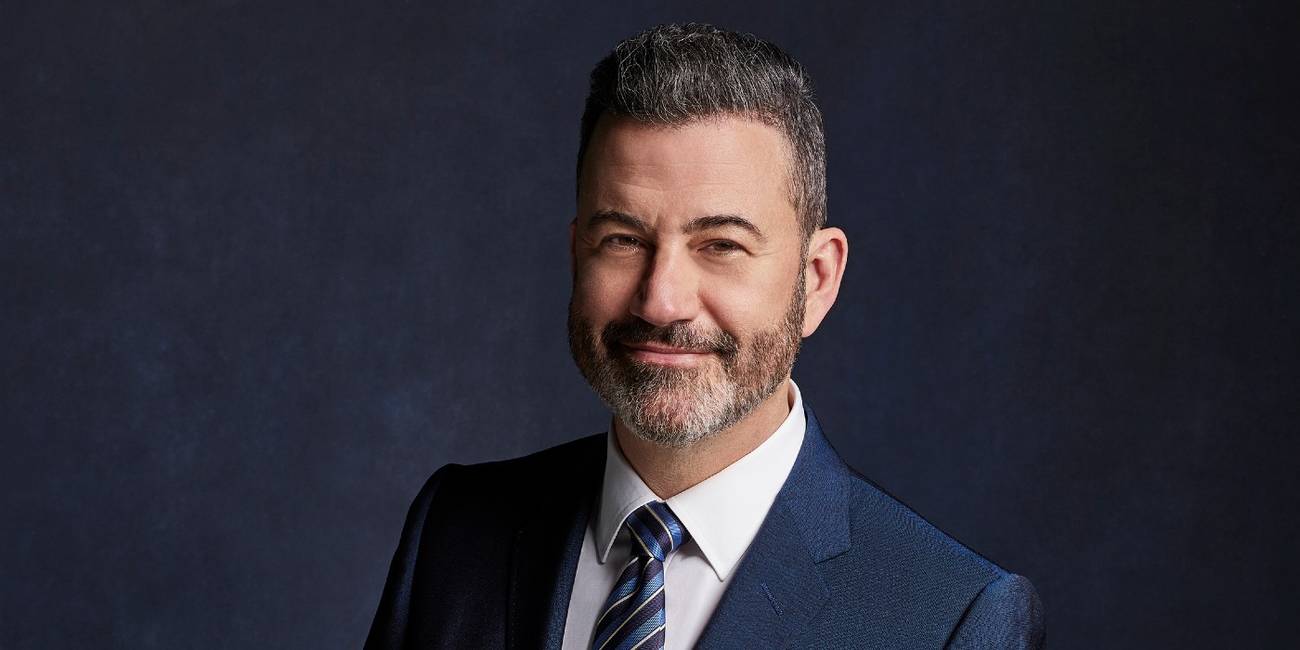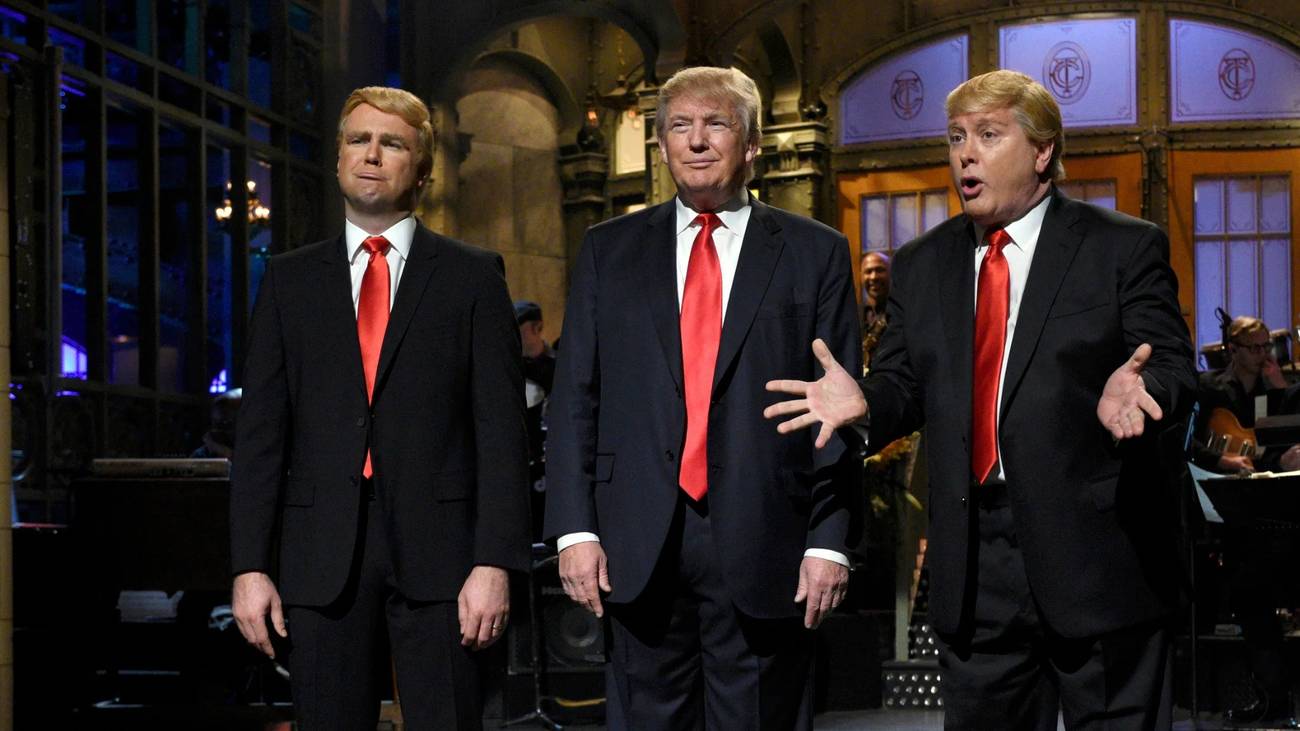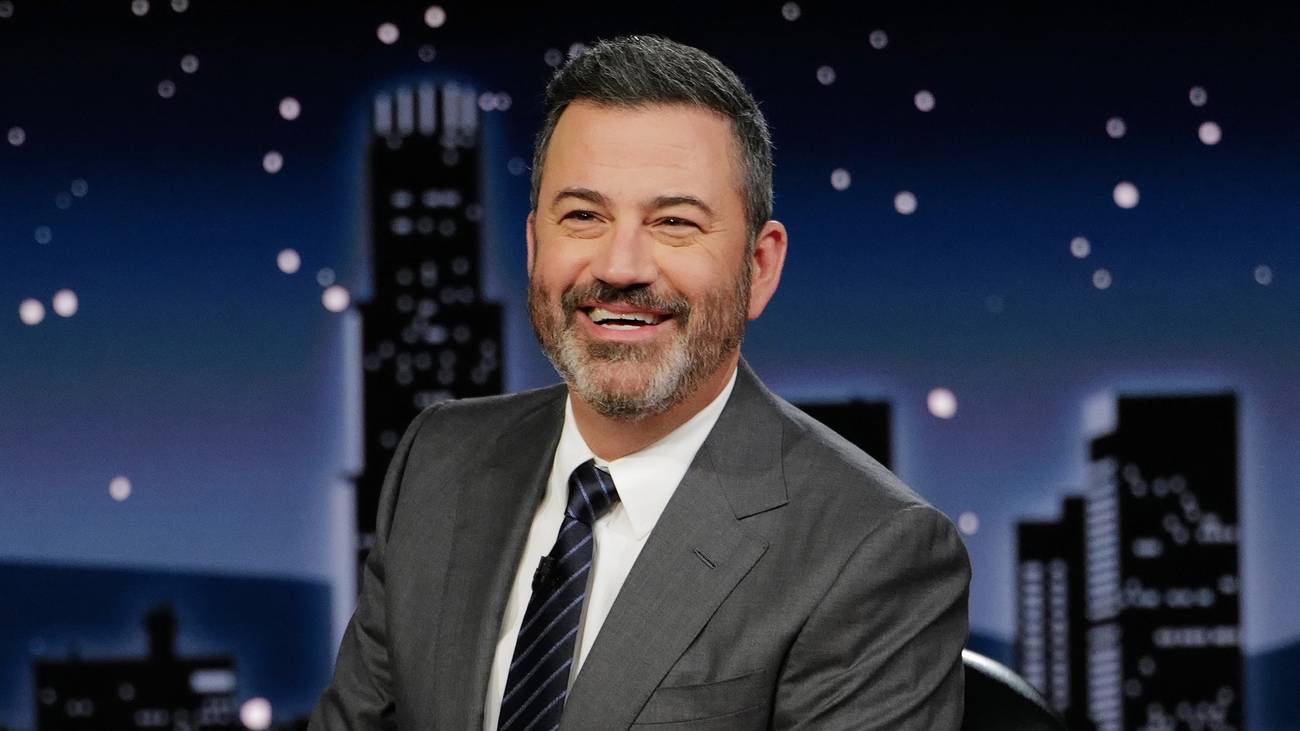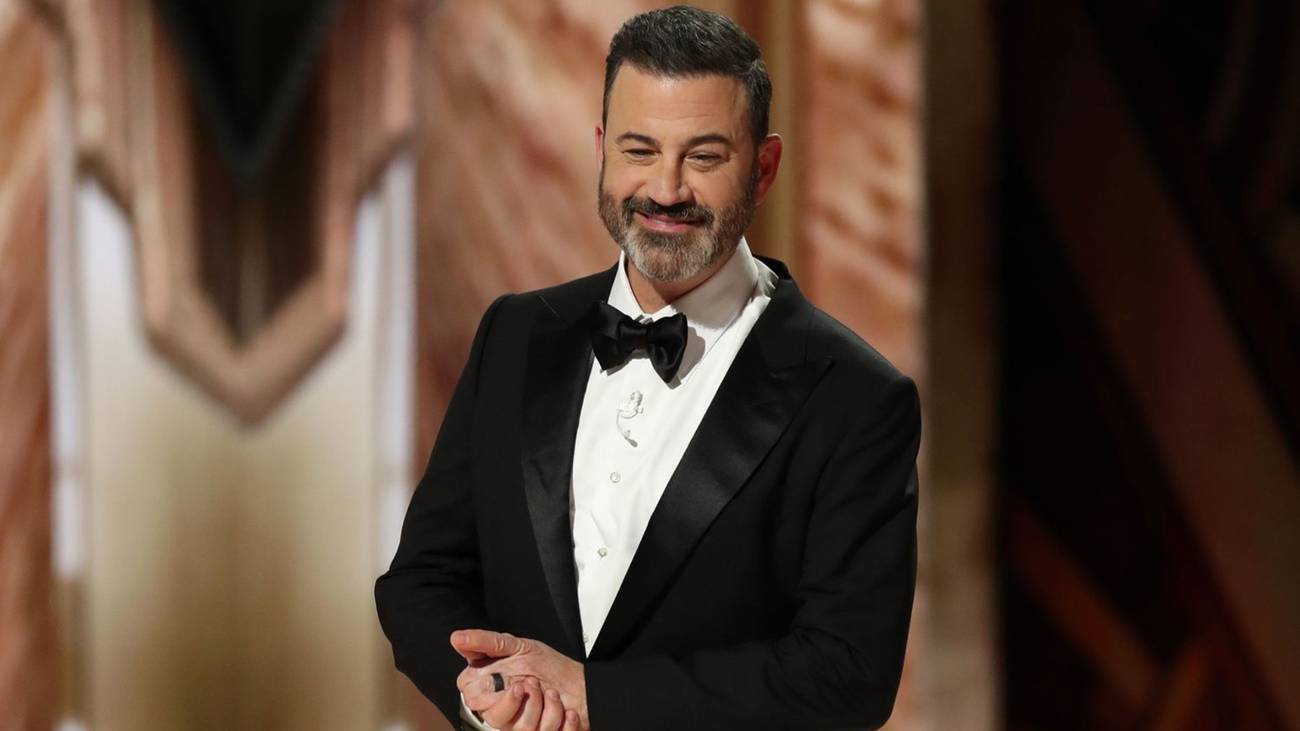It is both far-fetched and perfectly on brand that a battle over late-night TV ratings and time slots would become a microcosm for the Trump Administration’s ongoing war against the Constitution. Still, if you ask the man who wrote the book (literally) on The Business of Television, that’s precisely what is going on.
Late-night TV host Jimmy Kimmel was suspended last week, on September 17, prompting backlash from fans and some of Hollywood’s biggest stars. The comedian returned to Jimmy Kimmel Live! on September 22, delivering a lengthy monologue where he discussed Donald Trump, Charlie Kirk, and FCC Chairman Brendan Carr. The broadcast drew 6.3 million viewers, with an additional 20 million watching Kimmel’s opening on YouTube later that night. Is the drama over? Far from it. MovieWeb conducted an exclusive interview with legal expert and veteran TV executive Ken Basin to break it all down.
Breaking Down the Various Laws and Acts at Work in This Messy Stalemate
The facts, context, and background of the deals themselves serve to explain how this situation stands apart from those that might, on the surface, appear similar. For example, Rosanne Barr’s removal from television occurred under very different circumstances and did not infringe on freedom of speech. What made the Kimmel situation so “beyond the pale”? It was actually the comments made by Donald Trump and FCC Chairman Brendan Carr.
Yet why did Disney acquiesce in the first place? Why did the affiliate Nexstar want to remove Kimmel at the request of FCC Chair Brendan Carr? Why does it matter to Disney what Nexstar wants, and why did they change their mind? Why hasn’t Nexstar put Jimmy Kimmel Live! back on yet, and will they?
Ken Basin was a long-time senior executive at Paramount, Sony, Amazon, and Riot Games. He is also an adjunct professor at Harvard Law. His understanding of how these deals work, what motivates the major players, and how these things interact with our legal system allowed him to offer keen insight into the matter and where we’re headed next. But the bottom line of it all remains stunning:
“This is an escalation that speaks to a broader campaign of the use of government power and the threat of deploying the government’s authority to shut people up that they don’t like.”
Jimmy Kimmel Live! was suspended by ABC and its corporate parent, The Walt Disney Company, after the host made comments about the murder of far-right activist Charlie Kirk. He was reinstated due to a variety of factors, which Basin also breaks down rather succinctly. To fully grasp what’s happening and where we’re headed, we need to give a fuller context.
Why Disney/ABC Really Suspended ‘Jimmy Kimmel Live!’
What did Jimmy Kimmel say to get taken off the air in the first place? Kimmel’s initial comments criticized the conservative MAGA movement’s reaction to Charlie Kirk’s death. It wasn’t a joke but more a characterization that MAGA was, “desperately trying to characterize this kid who murdered Charlie Kirk as anything other than one of them and doing everything they can to score political points from it.”
On its own, Kimmel’s comments would not necessarily justify suspension by the broadcaster or its parent company. So what happened? It is related to a potential merger.
“Affiliates are owned by these large station groups. The station groups are trying to curry favor with the Administration and curry favor with the FCC, because Nexstar wants to merge with Tegna, another station group owner. Under existing regulations, they would not be allowed to merge, because there are regulatory limits on how many stations a single owner can have across the country, and a post-merger Nexstar/Tegna is over that limit. So Nexstar is engaging in public signaling to Brendan Carr, who’s fresh off flexing the muscle on Paramount/Skydance in that merger, and saying ‘We’re totally on board with the values of this administration, and so you should feel very comfortable changing the rules on mass ownership to allow us to acquire these stations, because we’re on your side, right?'”
How exactly did Brendan Carr, as an arm of Trump’s administration, flex his muscle over the Paramount/Skydance merger and ABC’s actions in the past?
“It dates back to comments that George Stephanopoulos made on ABC, where he said Donald Trump had been found liable for rape in court. That is, on a very technical level, not strictly speaking accurate. Donald Trump was found liable for sexual assault, not rape. If you polled 100 1st Amendment lawyers, probably 100 of them would have said that’s a loser lawsuit for Trump. Maybe 99 if you found a real ideologue. And yet, they still settled it for $16 million. This has been widely taken as rewarding the bully and encouraging and enabling the bully to see what else he can force out of people. There was also the 60 Minutes Interview with Kamala Harris during the 2024 campaign where Trump sued over the editing. The Paramount/CBS and Skydance merger was delayed in being approved by the FCC until, coincidentally, CBS agreed to settle that lawsuit brought by Trump against them for $16 million.”
Why would Disney suspend Kimmel, though, if some affiliates are upset and want a merger? One reason is that Disney wants its ad revenue from Kimmel to be on in every region. They also saw the writing on the wall. Basin added:
“Disney is also beholden, in various ways, to the FCC and other government bodies. There’s nothing imminent there, as there is for Nexstar, as there was for Paramount. But ABC owns 8 stations, including all major markets, including LA, Chicago, New York, Philadelphia, Houston, and Brendan Carr made the statement, ‘We can do this the easy way or the hard way.’ The FCC has the power to make Disney’s life difficult, even if they don’t really have the legal authority.”
Basin continued, “This administration has made clear that they’re perfectly happy to do things that 99% of legal scholars would agree that they don’t have the right to do.” The fact that Carr made these statements, however, and they came alongside direct comments from the president himself demanding networks cancel Kimmel, among other shows, made this a freedom of speech matter.
How the FCC and the Trump Administration Attacked Freedom of Speech
This is an escalation that speaks to a broader campaign of the use of government power and the threat of deploying the government’s authority to shut up the people they don’t like.
From a legal perspective, freedom of speech is straightforward: it does not guarantee the right to say anything without consequence, nor does it prevent others from responding to it. When Jimmy Kimmel says something a network or affiliate doesn’t like, for example, they can fire him. That isn’t an infringement on his freedoms.
What is, however, is whether the government plays a role. Basin explained:
“Removing Kimmel was an obvious violation of free speech. It was the government, via the FCC commissioner, with the loud public endorsement of the president threatening to take regulatory action against license holders because they do not like the content of the speech. Government imposed restraint on the basis of content is very strongly, presumptively illegal.”
In other words, had Carr and Trump never said a word, removing Kimmel wouldn’t have been considered illegal on any level or a violation of anyone’s constitutional rights. This, however, isn’t what helped bring Kimmel back to the air. What are the real reasons Disney/ABC decided to move forward without the backing of the station affiliate Nexstar? Basin believes it ties more closely to the personality of CEO Bob Iger:
“Disney is balancing a lot of things. The direct economic pressure in terms of losing out on ad revenue from the 20% of the country that’s not showing Kimmel doesn’t really move the needle for them, but they’re afraid of talent boycotts. Damon Lindelof tried to stir up a movement of writers to boycott working with Disney. Remember when Iger retired, the first time he was retiring as a champion. He was being celebrated as the best executive of his generation. His personal opinions are aligned with those of the entertainment community generally, right? He’s actually known for being very strong on the First Amendment and strong on free speech.”
Basin continues, saying, “The ABC News building in New York is named the Robert A. Iger building. Michael Eisner pressured him on X. I think that had echoes of him calling Bob Chapek out over the ‘Don’t Say Gay’ issue. He’s a guy who strongly considered running for president. Then, from Dana Walden’s perspective, as the other most important decision maker in the room, she’s in a long-term audition to become the new CEO of Disney.”
“So they underestimated how strong the counter-reaction would be from the left and from the community,” Basin explains. “People rightly recognize that this is not about Jimmy. This is not about exactly what joke Jimmy made. This is a canary in a coal mine. This is an escalation that speaks to a broader campaign of the use of government power and the threat of deploying the government’s authority to shut up the people they don’t like.”
Why Isn’t ‘Jimmy Kimmel Live!’ Airing Everywhere Then?
While ABC/Disney reinstated Kimmel, he is not showing in some regions of the country. The reason the affiliates can do this is related to the specific interpretation of a 1934 law called The Communications Act:
“The way these deals between networks and affiliates who own station groups work is that the network provides programming for the network-programmed hours. That would include morning news shows, the prime time block from 8-11pm, and the late night talk shows like Jimmy Kimmel Live! For the rest of the day, the stations program their own content be it local news, licensing syndication shows, licensing game shows, etc.”
“Generally, by default, the stations are required to show the network’s programming in those network-programmed time slots. There are exceptions, and the main exception is what is called ‘the public interest exception,’ which is a big reason why you’ve heard that phrase being used a lot,” Basin says.
“Because, you know, in the public interest is like the key phrase in the Communications Act that hangs over granting licenses to broadcasters, radio, TV, anybody who’s putting content out over the airways. When Nexstar says that they’re not just making a political statement by not showing Kimmel in certain regions, it’s because they’re parroting the contractual language that forms the basis of their right to preempt it.”
Some people may recall that when Lucille Ball was pregnant, it wasn’t shown nationwide. Or how Captain Kirk’s kiss with Uhura, television’s first interracial kiss, wasn’t shown in the South. Or how, for a very long time, some states weren’t comfortable with TV shows that depicted married couples sleeping in the same bed. These are the left-right TV battles of old. The battle of today is Jimmy Kimmel. It’s the “public interest exception” that allows the affiliates to back out of their contractual agreement to show whatever the parent company provides for the agreed time slots.
Thus, Jimmy Kimmel joins examples such as interracial kisses, couples sharing beds, and pregnant women — instances deemed not in “the public interest” by some states. Again, this part isn’t considered an overlap with First Amendment rights because it’s not the government choosing to impose its will to silence anyone. Instead, it’s a vague line in the Communications Act that is open to some interpretation by business entities deciding what is in the “best interests” of the region they provide content to.
Given that background, do most Americans of any political viewpoint want Nexstar to censor what comes through the air and decide for them what is in their best interests? Especially when it’s solely based on Nexstar’s ability to push through a merger?
Basin believes the affiliates’ actions are actually very much against the public interest, according to the traditional reading of the Communications Act. “The concept of public interest in the context of communications law has three subcategories, which are diversity of viewpoints, localism, and competition. The irony of all of this — of what’s bad for the public interest — is what Nexstar wants to do with this merger, of having a mass single ownership of broadcast stations.”
“It is bad for diversity of viewpoints, because they tend to harmonize the content and push out the same type of content across all the stations in their portfolio. It’s bad for competition, because they would own such a dominant share of the market. And it’s bad for localism, because national ownership promotes the distribution of content across all stations, rather than content that is produced specifically about those local communities.”
What’s Next in the Trump vs. Kimmel Showdown?
It’s impossible to know how these things will resolve, but right now, we are at a stalemate where affiliates are refusing to show Kimmel in the late-night slot to allegedly continue to earn their favor for the Nexstar/Tegna merger. Disney/ABC has taken the calculated risk of keeping him on air and accepting whatever losses come with that, while balancing all other factors at play. Donald Trump hasn’t taken his foot off the gas in terms of public comments calling for Kimmel’s removal, as well as the removal of other late-night hosts, which, again, would create a violation of free speech if networks acted at his behest.
So where are we headed? Who blinks first? Basin breaks it down: “The most likely outcome is that things settle back down, and Nexstar quietly puts Kimmel back on the air in that time slot, and everybody lives to fight another day. Nexstar, I think, has made its point to the FCC and the Trump administration that it is friendly to their desires, and they should take care of them in this merger. I don’t think anybody on any side of this, the network, the stations, or the administration, benefits from prolonging and escalating it.”
“But there are ways that it could be escalated. The stations have very limited rights to preempt network programming [like remove more than just Kimmel]. Usually under these affiliate agreements, if an affiliate is excessively preempting network programming beyond what it actually has the right to do under the deal, the network has the right to withhold other network programming, like, I don’t know, say Monday Night Football. That’s the nuclear option.”
The nuclear option, then, is held in the hands of the network, which is why Basin ultimately believes the affiliates will back down, having shown fealty to Trump and Carr. For the affiliates to lose Monday Night Football wouldn’t go over well, regardless of what part of the political spectrum you reside in.
Ultimately, real power resides with the government, which is unafraid to assert its authority. Though the Trump Administration has broken with tradition by inserting itself into the specific hiring and firing actions of independent companies, Basin believes there is no reason to think the Supreme Court would ever stop him. “The reason the administration is so emboldened is because they can do things that 99% of people agree are illegal, because there’s a much better than 1% chance that the Supreme Court will say, ‘Oh, actually, it’s fine.'”
In the end, while the events of the last week are deeply entrenched in the specifics of late-night time slots, mergers, and affiliate revenue, they ultimately signal concerns about the extent of government control over what we see, read, and hear. We may have just glimpsed an America where the government’s power over these things is absolute, and we, the people, are at the mercy of their information.





